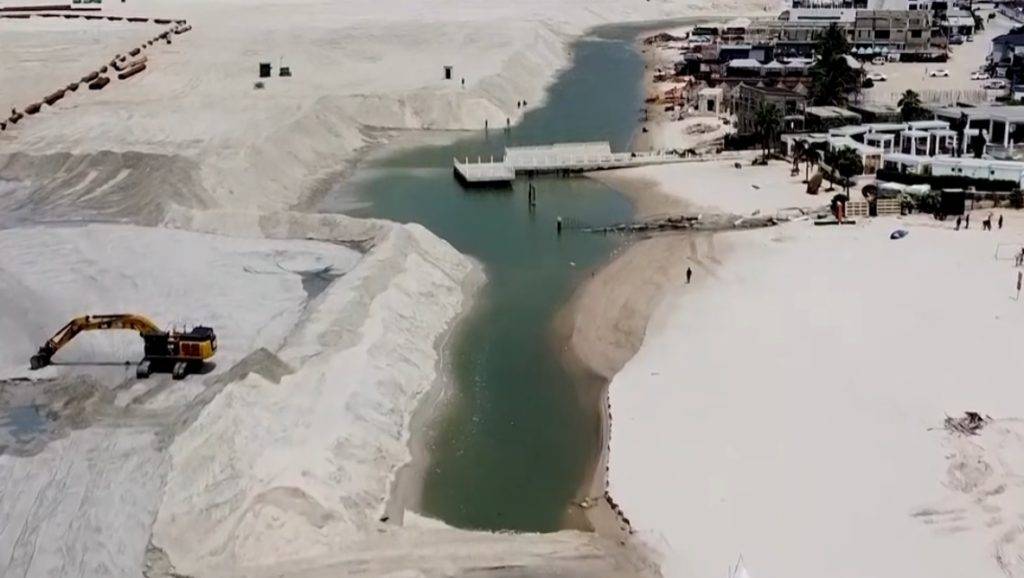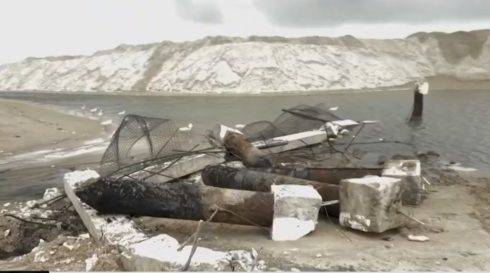The long-awaited demolition of structures along the proposed Lagos-Calabar Coastal Road has commenced, marking a significant milestone in this ambitious infrastructure project. As bulldozers and excavators roar, buildings and fences are being razed, sparking uproar among affected communities over the damages incurred.
However, amidst the upheaval, the potential benefits of this project remain largely overlooked. The Lagos-Calabar Coastal Road promises to unlock economic opportunities, enhance regional connectivity, and catalyze development along Nigeria’s coastal region.
The Vision: A Transformative Infrastructure
Drawing inspiration from the remarkable transformation of Dubai, the Lagos-Calabar Coastal Road project aims to reshape Nigeria’s coastal landscape. Just as Dubai witnessed the creation of an architectural marvel within a short timeframe, this ambitious endeavor seeks to usher in a new era of modernity and progress.
The proposed coastal road will not only streamline transportation but also serve as a catalyst for urban renewal, attracting investments and fostering economic growth in the regions it traverses.
Sacrifices for Progress: Lessons from Dubai
The development of Dubai’s iconic skyline and world-class infrastructure came at a cost – the demolition of older structures to make way for newer, more modern developments. While this process of demolition was necessary for progress, it inevitably led to the displacement of communities and the loss of historical landmarks, raising concerns about cultural preservation and social cohesion.
However, the benefits of Dubai’s construction boom cannot be overlooked. The city witnessed a surge in employment opportunities across various sectors, including construction, tourism, hospitality, and finance, contributing to its economic prosperity.

The Nigerian Context: Embracing Change
As Nigeria embarks on this transformative journey, it is crucial to recognize the sacrifices required for progress. While the call for a “new Nigeria” resonates with many, the reality is that substantial change often demands significant sacrifices.
The demolition of structures along the proposed coastal road route has ignited a wave of discontent, highlighting the challenges of balancing development goals with the preservation of existing communities and their way of life.
As the Lagos-Calabar Coastal Road project gains momentum, it is essential to engage in open dialogue and address the concerns of affected communities. By learning from the experiences of cities like Dubai, Nigeria can strive to mitigate the negative impacts of development while maximizing its potential benefits.
The road to progress may be paved with challenges, but the vision of a connected, prosperous, and modernized coastal region remains a compelling goal worth pursuing, provided it is achieved through inclusive and sustainable measures.
Lagos-Calabar Coastal Road: The Vision of Transformation: Embracing the Future
While the demolition of structures along the proposed Lagos-Calabar Coastal Road route has sparked outcry and concerns, it is crucial to recognize the long-term vision and potential benefits that this ambitious project holds. Those fixated solely on the immediate losses may fail to grasp the bigger picture and the transformative impact it could have on Nigeria’s future.
The Lagos State project, initiated under the leadership of former governor Bola Tinubu, faced similar opposition and criticism during its early stages. Forceful removal of street vendors and the displacement of communities were met with outcry, with many blaming the government for exacerbating hardship. However, the eventuality of this project has positioned Lagos as one of the foremost cities in Africa and the wealthiest in Nigeria and West Africa by various measures.
The Lagos-Calabar Coastal Road project represents a philanthropic endeavor to achieve a “new Nigeria,” one that is more prosperous, connected, and developed. While the outcry over the demolition is understandable, it is essential to maintain a broader perspective and recognize the potential for positive change that such initiatives can bring.
The Path to Progress: Balancing Concerns and Opportunity
As Nigeria embarks on this transformative journey, it is crucial to strike a balance between addressing the concerns of affected communities and seizing the opportunities presented by the project. Open dialogue, transparent communication, and inclusive planning processes can help mitigate the negative impacts while maximizing the potential benefits.
The lessons learned from the Lagos State project underscore the importance of perseverance and maintaining a long-term vision. While the initial stages may be met with resistance and upheaval, the ultimate outcome can be a catalyst for economic growth, improved infrastructure, and enhanced quality of life for the broader population.
By addressing the immediate concerns of displaced communities through robust compensation and resettlement programs, and by ensuring the project adheres to principles of sustainability and environmental stewardship, Nigeria can navigate the challenges of the present while paving the way for a brighter future.
The Lagos-Calabar Coastal Road project represents a pivotal moment in Nigeria’s development trajectory. By embracing the vision of transformation while addressing the legitimate concerns of affected communities, the country can forge ahead on the path to progress, leaving a lasting legacy for generations to come.
Table of Contents
Discover more from OGM News NG
Subscribe to get the latest posts sent to your email.














